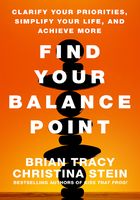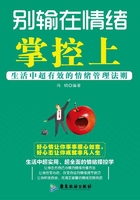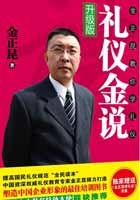Of the Division of Stock
BOOK TWO Of the Nature, Accumulation, and Employment of Stock Introduction
IN that rude state of society in which there is no division of labour, in which exchanges are seldom made, and in which every man provides everything for himself, it is not necessary that any stock should be accumulated or stored up beforehand in order to carry on the business of the society. Every man endeavours to supply by his own industry his own occasional wants as they occur. When he is hungry, he goes to the forest to hunt; when his coat is worn out, he clothes himself with the skin of the first large animal he kills: and when his hut begins to go to ruin, he repairs it, as well as he can, with the trees and the turf that are nearest it.
But when the division of labour has once been thoroughly introduced, the produce of a man's own labour can supply but a very small part of his occasional wants. The far greater part of them are supplied by the produce of other men's labour, which he purchases with the produce, or, what is the same thing, with the price of the produce of his own. But this purchase cannot be made till such time as the produce of his own labour has not only been completed, but sold. A stock of goods of different kinds, therefore, must be stored up somewhere sufficient to maintain him, and to supply him with the materials and tools of his work till such time, at least, as both these events can be brought about. A weaver cannot apply himself entirely to his peculiar business, unless there is beforehand stored up somewhere, either in his own possession or in that of some other person, a stock sufficient to maintain him, and to supply him with the materials and tools of his work, till he has not only completed, but sold his web. This accumulation must, evidently, be previous to his applying his industry for so long a time to such a peculiar business.
As the accumulation of stock must, in the nature of things, be previous to the division of labour, so labour can be more and more subdivided in proportion only as stock is previously more and more accumulated. The quantity of materials which the same number of people can work up, increases in a great proportion as labour comes to be more and more subdivided; and as the operations of each workman are gradually reduced to a greater degree of simplicity, a variety of new machines come to be invented for facilitating and abridging those operations. As the division of labour advances, therefore, in order to give constant employment to an equal number of workmen, an equal stock of provisions, and a greater stock of materials and tools than what would have been necessary in a ruder state of things, must be accumulated beforehand. But the number of workmen in every branch of business generally increases with the divisio n of labour in that branch, or rather it is the increase of their number which enables them to class and subdivide themselves in this manner.
As the accumulation of stock is previously necessary for carrying on this great improvement in the productive powers of labour, so that accumulation naturally leads to this improvement. The person who employs his stock in maintaining labour, necessarily wishes to employ it in such a manner as to produce as great a quantity of work as possible. He endeavours, therefore, both to make among his workmen the most proper distribution of employment, and to furnish them with the best machines which he can either invent or afford to purchase. His abilities in both these respects are generally in proportion to the extent of his stock, or to the number of people whom it can employ. The quantity of industry, therefore, not only increases in every country with the increase of the stock which employs it, but, in consequence of that increase, the same quantity of industry produces a much greater quantity of work.
Such are in general the effects of the increase of stock upon industry and its productive powers.
In the following book I have endeavoured to explain the nature of stock, the effects of its accumulation into capitals of different kinds, and the effects of the different employments of those capitals. This book is divided into five chapters. In the first chapter, I have endeavoured to show what are the different parts or branches into which the stock, either of an individual, or of a great society, naturally divides itself. In the second, I have endeavoured to explain the nature and operation of money considered as a particular branch of the general stock of the society. The stock which is accumulated into a capital, may either be employed by the person to whom it belongs, or it may be lent to some other person. In the third and fourth chapters, I have endeavoured to examine the manner in which it operates in both these situations. The fifth and last chapter treats of the different effects which the different employments of capital immediately produce upon the quantity both of national industry, and of the annual produce of land and labour.
WHEN the stock which a man possesses is no more than sufficient to maintain him for a few days or a few weeks, he seldom thinks of deriving any revenue from it. He consumes it as sparingly as he can, and endeavours by his labour to acquire something which may supply its place before it be consumed altogether. His revenue is, in this case, derived from his labour only. This is the state of the greater part of the labouring poor in all countries.
But when he possesses stock sufficient to maintain him for months or years, he naturally endeavours to derive a revenue from the greater part of it; reserving only so much for his immediate consumption as may maintain him till this revenue begins to come in. His whole stock, therefore, is distinguished into two parts. That part which, he expects, is to afford him this revenue, is called his capital. The other is that which supplies his immediate consumption; and which consists either, first, in that portion of his whole stock which was originally reserved for this purpose; or, secondly, in his revenue, from whatever source derived, as it gradually comes in; or, thirdly, in such things as had been purchased by either of these in former years, and which are not yet entirely consumed; such as a stock of clothes, household furniture, and the like. In one, or other, or all of these three articles, consists the stock which men commonly reserve for their own immediate consumption.
There are two different ways in which a capital may be employed so as to yield a revenue or profit to its employer.
First, it may be employed in raising, manufacturing, or purchasing goods, and selling them again with a profit. The capital employed in this manner yields no revenue or profit to its employer, while it either remains in his possession, or continues in the same shape. The goods of the merchant yield him no revenue or profit till he sells them for money, and the money yields him as little till it is again exchanged for goods. His capital is continually going from him in one shape, and returning to him in another, and it is only by means of such circulation, or successive exchanges, that it can yield him any profit. Such capitals, therefore, may very properly be called circulating capitals.
Secondly, it may be employed in the improvement of land, in the purchase of useful machines and instruments of trade, or in suchlike things as yield a revenue or profit without changing masters, or circulating any further. Such capitals, therefore, may very properly be called fixed capitals.
Different occupations require very different proportions between the fixed and circulating capitals employed in them.
The capital of a merchant, for example, is altogether a circulating capital. He has occasion for no machines or instruments of trade, unless his shop, or warehouse, be considered as such.
Some part of the capital of every master artificer or manufacturer must be fixed in the instruments of his trade. This part, however, is very small in some, and very great in others. A master tailor requires no other instruments of trade but a parcel of needles. Those of the master shoemaker are a little, though but a very little, more expensive. Those of the weaver rise a good deal above those of the shoemaker. The far greater part of the capital of all such master artificers, however, is circulated, either in the wages of their workmen, or in the price of their materials, and repaid with a profit by the price of the work.
In other works a much greater fixed capital is required. In a great iron-work, for example, the furnace for melting the ore, the forge, the slitt- mill, are instruments of trade which cannot be erected without a very great expense. In coal-works and mines of every kind, the machinery necessary both for drawing out the water and for other purposes is frequently still more expensive.
That part of the capital of the farmer which is employed in the instruments of agriculture is a fixed, that which is employed in the wages and maintenance of his labouring servants, is a circulating capital. He makes a profit of the one by keeping it in his own possession, and of the other by parting with it. The price or value of his labouring cattle is a fixed capital in the same manner as that of the instruments of husbandry. Their maintenance is a circulating capital in the same manner as that of the labouring servants. The farmer makes his profit by keeping the labouring cattle, and by parting with their maintenance. Both the price and the maintenance of the cattle which are brought in and fattened, not for labour, but for sale, are a circulating capital. The farmer makes his profit by parting with them. A flock of sheep or a herd of cattle that, in a breeding country, is bought in, neither for labour, nor for sale, but in order to make a profit by their wool, by their milk, and by their increase, is a fixed capital.
The profit is made by keeping them. Their maintenance is a circulating capital. The profit is made by parting with it; and it comes back with both its own profit and the profit upon the whole price of the cattle, in the price of the wool, the milk, and the increase. The whole value of the seed, too, is properly a fixed capital. Though it goes backwards and forwards between the ground and the granary, it never changes masters, and therefore does not properly circulate. The farmer makes his profit, not by its sale, but by its increase.
The general stock of any country or society is the same with that of all its inhabitants or members, and therefore naturally divides itself into the same three portions, each of which has a distinct function or office.
The first is that portion which is reserved for immediate consumption, and of which the characteristic is, that it affords no revenue or profit. It consists in the stock of food, clothes, household furniture, etc., which have been purchased by their proper consumers, but which are not yet entirely consumed. The whole stock of mere dwelling- houses too, subsisting at any one time in the country, make a part of this first portion. The stock that is laid out in a house, if it is to be the dwellinghouse of the proprietor, ceases from that moment to serve in the function of a capital, or to afford any revenue to its owner. A dwellinghouse, as such, contributes nothing to the revenue of its inhabitant; and though it is, no doubt, extremely useful to him, it is as his clothes and household furniture are useful to him, which, however, makes a part of his expense, and not of his revenue. If it is to be let to a tenant for rent, as the house itself can produce nothing, the tenant must always pay the rent out of some other revenue which he derives either from labour, or stock, or land. Though a house, therefore, may yield a revenue to its proprietor, and thereby serve in the function of a capital to him, it cannot yield any to the public, nor serve in the function of a capital to it, and the revenue of the whole body of the people can never be in the smallest degree increased by it. Clothes, and household furniture, in the same manner, sometimes yield a revenue, and thereby serve in the function of a capital to particular persons. In countries where masquerades are common, it is a trade to let out masquerade dresses for a night. Upholsterers frequently let furniture by the month or by the year. Undertakers let the furniture of funerals by the day and by the week. Many people let furnished houses, and get a rent, not only for the use of the house, but for that of the furniture. The revenue, however, which is derived from such things must always be ultimately drawn from some other source of revenue. Of all parts of the stock, either of an individual, or of a society, reserved for immediate consumption, what is laid out in houses is most slowly consumed. A stock of clothes may last several years: a stock of furniture half a century or a century: but a stock of houses, well built and properly taken care of, may last many centuries. Though the period of their total consumption, however, is more distant, they are still as really a stock reserved for immediate consumption as either clothes or household furniture.
The second of the three portions into which the general stock of the society divides itself, is the fixed capital, of which the characteristic is, that it affords a revenue or profit without circulating or changing masters. It consists chiefly of the four following articles:
First, of all useful machines and instruments of trade which facilitate and abridge labour:
Secondly, of all those profitable buildings which are the means of procuring a revenue, not only to their proprietor who lets them for a rent, but to the person who possesses them and pays that rent for them; such as shops, warehouses, workhouses, farmhouses, with all their necessary buildings; stables, granaries, etc. These are very different from mere dwelling houses. They are a sort of instruments of trade, and may be considered in the same light:
Thirdly, of the improvements of land, of what has been profitably laid out in clearing, draining, enclosing, manuring, and reducing it into the condition mo st proper for tillage and culture. An improved farm may very justly be regarded in the same light as those useful machines which facilitate and abridge labour, and by means of which an equal circulating capital can afford a much greater revenue to its employer. An improved farm is equally advantageous and more durable than any of those machines, frequently requiring no other repairs than the most profitable application of the farmer's capital employed in cultivating it:
Fourthly, of the acquired and useful abilities of all the inhabitants or members of the society. The acquisition of such talents, by the maintenance of the acquirer during his education, study, or apprenticeship, always costs a real expense, which is a capital fixed and realized, as it were, in his person. Those talents, as they make a part of his fortune, so do they likewise of that of the society to which he belongs. The improved dexterity of a workman may be considered in the same light as a machine or instrument of trade which facilitates and abridges labour, and which, though it costs a certain expense, repays that expense with a profit.
The third and last of the three portions into which the general stock of the society naturally divides itself, is the circulating capital; of which the characteristic is, that it affords a revenue only by circulating or changing masters. It is composed likewise of four parts:
First, of the money by means of which all the other three are circulated and distributed to their proper consumers:
Secondly, of the stock of provisions which are in the possession of the butcher, the grazier, the farmer, the corn- merchant, the brewer, etc., and from the sale of which they expect to derive a profit:
Thirdly, of the materials, whether altogether rude, or more or less manufactured, of clothes, furniture, and building, which are not yet made up into any of those three shapes, but which remain in the hands of the growers, the manufacturers, the mercers and drapers, the timber merchants, the carpenters and joiners, the brickmakers, etc.
Fourthly, and lastly, of the work which is made up and completed, but which is still in the hands of the merchant or manufacturer, and not yet disposed of or distributed to the proper consumers; such as the finished work which we frequently find ready-made in the shops of the smith, the cabinet- maker, the goldsmith, the jeweller, the china- merchant, etc. The circulating capital consists in this manner, of the provisions, materials, and finished work of all kinds tha t are in the hands of their respective dealers, and of the money that is necessary for circulating and distributing them to those who are finally to use or to consume them.
Of these four parts, three- provisions, materials, and finished work- are, either annually, or in a longer or shorter period, regularly withdrawn from it, and placed either in the fixed capital or in the stock reserved for immediate consumption.
Every fixed capital is both originally derived from, and requires to be continually supported by a circulating capital. All useful machines and instruments of trade are originally derived from a circulating capital, which furnishes the materials of which they are made, and the maintenance of the workmen who make them. They require, too, a capital of the same kind to keep them in constant repair.
No fixed capital can yield any revenue but by means of a circulating capital. The most useful machines and instruments of trade will produce nothing without the circulating capital which affords the materials they are employed upon, and the maintenance of the workmen who employ them. Land, however improved, will yield no revenue without a circulating capital, which maintains the labourers who cultivate and collect its produce.
To maintain and augment the stock which may be reserved for immediate consumption is the sole end and purpose both of the fixed and circulating capitals. It is this stock which feeds, clothes, and lodges the people. Their riches or poverty depends upon the abundant or sparing supplies which those two capitals can afford to the stock reserved for immediate consumption.
So great a part of the circulating capital being continually withdrawn from it, in order to be placed in the other two branches of the general stock of the society; it must in its turn require continual supplies, without which it would soon cease to exist. These supplies are principally drawn from three sources, the produce of land, of mines, and of fisheries. These afford continual supplies of provisions and materials, of which part is afterwards wrought up into finished work, and by which are replaced the provisions, materials, and finished work continually withdrawn from the circulating capital. From mines, too, is drawn what is necessary for maintaining and augmenting that part of it which consists in money. For though, in the ordinary course of business, this part is not, like the other three, necessarily withdrawn from it, in order to be placed in the other two branches of the general stock of the society, it must, however, like all other things, be wasted and worn out at last, and sometimes, too, be either lost or sent abroad, and must, therefore, require continual, though, no doubt, much smaller supplies.
Land, mines, and fisheries, require all both a fixed and a circulating capital to cultivate them; and their produce replaces with a profit, not only those capitals, but all the others in the society. Thus the farmer annually replaces to the manufacturer the provisions which he had consumed and the materials which be had wrought up the year before; and the manufacturer replaces to the farmer the finished work which he had wasted and worn out in the same time. This is the real exchange that is annually made between those two orders of people, though it seldom happens that the rude produce of the one and the manufactured produce of the other, are directly bartered for one another; because it seldom happens that the farmer sells his corn and his cattle, his flax and his wool, to the very same person of whom he chooses to purchase the clothes, furniture, and instruments of trade which he wants. He sells, therefore, his rude produce for money, with which he can purchase, wherever it is to be had, the manufactured produce he has occasion for. Land even replaces, in part at least, the capitals with which fisheries and mines are cultivated. It is the produce of land which draws the fish from the waters; and it is the produce of the surface of the earth which extracts the minerals from its bowels.
The produce of land, mines, and fisheries, when their natural fertility is equal, is in proportion to the extent and proper application of the capitals employed about them. When the capitals are equal and equally well applied, it is in proportion to their natural fertility.
In all countries where there is tolerable security, every man of common understanding will endeavour to employ whatever stock he can command in procuring either present enjoyment or future profit. If it is employed in procuring present enjoyment, it is a stock reserved for immediate consumption. If it is employed in procuring future profit, it must procure this profit either staying with him, or by going from him. In the one case it is fixed, in the other it is a circulating capital. A man must be perfectly crazy who, where there is tolerable security, does not employ all the stock which he commands, whether be his own or borrowed of other people, in some one or other of those three ways.
In those unfortunate countries, indeed, where men are continually afraid of the violence of their superiors, they frequently bury and conceal a great part of their stock, in order to have it always at hand to carry with them to some place of safety, in case of their being threatened with any of those disasters to which they consider themselves as at all times exposed. This is said to be a common practice in Turkey, in Indostan, and, I believe, in most other governments of Asia. It seems to have been a common practice among our ancestors during the violence of the feudal government. Treasure-trove was in those times considered as no contemptible part of the revenue of the greatest sovereigns in Europe. It consisted in such treasure as was found concealed in the earth, and to which no particular person could prove any right. This was regarded in those times as so important an object, that it was always considered as belonging to the sovereign, and neither to the finder nor to the proprietor of the land, unless the right to it had been conveyed to the latter by an express clause in his charter. It was put upon the same footing with gold and silver mines, which, without a special clause in the charter, were never supposed to be comprehended in the general grant of the lands, though mines of lead, copper, tin, and coal were as things of smaller consequence.















